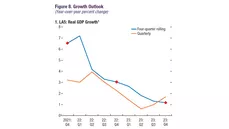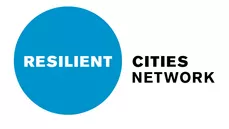
In this TUM São Paulo Insight, liaison officer Sören Metz addresses a global issue that is particularly relevant in Brazil and other Latin American countries: urban planning and urban resilience. After all, more than 80 percent of the population in Latin America lives in cities – the largest share worldwide after Asia. As a result, the need for development assistance at the urban level in Latin America is a huge challenge for the region.
According to the UN, losses to cities from natural disasters average close to $250 billion a year. And this sum only takes into account the economic damage. The loss of human life is far more serious. However, cities can do something to protect their residents by supporting robust physical and social infrastructure – in other words, creating urban resilience.

What does urban resilience mean? Resilience in general is the ability to cope with crises and use them as an occasion for development by drawing on personal and socially mediated resources. Urban resilience specifically refers to the ability of urban systems to maintain their stability during a stressful situation, thereby protecting life and property. In addition to hazard planning, this capacity includes the ability to be flexible and adapt to new conditions.
Urban planning and growth development in Latin America
Even before the Corona pandemic, cities in Latin America faced some of the greatest income inequality in the world. According to the International Monetary Fund, the economic recovery of most countries in this region began in 2021. However, growth in the region is projected to lag behind expected global economic growth in the coming years. This fact underscores the need to think together about new solutions that can bring much-needed investment to Latin American cities to drive a stable recovery.
Latin American cities offer incredible potential for growth and innovation, especially given their still relatively young populations by comparison and steadily improving education. This region could thus also become a pioneer for resilience solutions for the rest of the world.
Possible solutions for the region
The Economic Commission for Latin America and the Caribbean (ECLAC) has pointed out that the social fabric in Latin America and the Caribbean is a major problem. Given the numerous social problems in the region, "social cohesion" has become a central concept in the history of Latin American development. Regional researchers believe that sustainable practices can help eradicate poverty and improve the quality of life by linking individuals, the community, and the environment.
Last but not least, social aspects such as building social capital are seen as an essential mechanism for understanding the shift towards environmentally friendly behavior, in which environmentally friendly behavior directly leads to better living conditions in urban areas.
Salvador da Bahia – a case study

The Resilient Cities Network, Avina Foundation, and IDB Lab have launched the Resilient Cities regional initiative to promote innovative solutions to strengthen urban resilience in Latin America. The private sector will be heavily involved in implementing the plans.
The fourth largest Brazilian city, Salvador da Bahia, with 2,857,329 inhabitants, is part of the Resilient Cities Network. As part of the 2018 participatory process to create its resilience strategy, the city identified the effects of disruptive events that occur at a given time, such as heat waves, and chronic stresses such as social inequality. Following a call for solutions, various local businesses are now contributing to the improvement of diverse challenges.
During the survey, it became clear that food supply was one of the top three issues to be addressed. For this area, the start-up Combra acts as a digital link for the integration of small producers in the logistics chain to improve the marketing of their respective products in the city's restaurants. This promotes the economic growth of local producers and creates jobs in the agricultural and logistics sector, which in turn benefits local economic development.
GBcycle is making a valuable contribution to water and wastewater treatment in Salvador da Bahia. The start-up uses biotechnologies to treat surface water from urban rivers. The company uses a biorefinery with a microalgae-based process to remove and biotransform pollutants into biomass and value-added bioproducts. GBcycle targets industries, farms, and municipalities that need proper treatment and final destination of their residual wastewater.
Support from TUM through Horizon 2020 project CONEXUS.

TUM is involved in solutions for the region through an EU-funded project: CONEXUS is a consortium of partners from the EU and Latin America that is funded until 2024 as part of a Horizon 2020 project. The project is working in parallel in seven major cities, sprawling metropolitan areas and capital cities. Together, the cities are taking on the challenge of sustainable urbanization. In implementing improvement measures, they are united not only by their experience and transdisciplinary approach, but also by their vision to implement place-based "Nature based Solutions" (NbS) and nature-based thinking.
TUM's focus in the CONEXUS project will be to strengthen the rationality and narratives underlying the implementation and creation of NbS. This will involve evaluating existing and initiated NbS projects and analyzing their performance as well as drawbacks as well as benefits for more livable, healthier, and resilient cities in order to stimulate and guide more cost-effective future redevelopment efforts, plans, and methods.
Partner cities and the associated universities from the region are Bogotá, Buenos Aires, São Paulo, and Santiago de Chile. Involved on the part of TUM is the Chair for Strategic Landscape Planning and Management of Prof. Stephan Pauleit.
Collaborations TUM - Latin America
Are you interested in a cooperation in the field of urban resilience? TUM São Paulo liaison officer Sören Metz is happy to support TUM scientists in finding suitable partners in Latin America for joint projects in order to make use of the region's innovation potential.